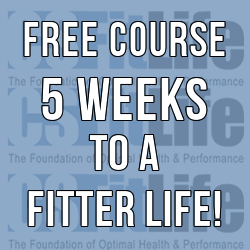Key Points:
- Eating a plant-based diet has benefits and drawbacks.
- The common drawbacks are lack of protein and calories plus the creation of nutrient deficiencies.
- To reap the benefits of a plant-based diet, avoid the highly processed imitation meats, focus on protein dense plant-based foods, and work to eliminate deficiencies through careful planning and/or supplementation.
Okay, so you don’t eat meat? Why the heck not?
Well, actually there may be several different, legitimate reasons. Those who choose to follow a “vegan” or “vegetarian” lifestyle often do so for moral and philosophical reasons. For example, some believe that avoiding meats is healthier or that it’s better for the environment. Some have religious or animal rights’ beliefs that conflict with an omnivorous diet. Some just don’t like the taste and/or the texture.
Regardless of the reason for not eating meat, the terms “vegan” and “vegetarian” bring a lot of connotations, both negative and positive. To avoid this, I choose to use the term “plant-based” diet. There are multiple levels of plant-based diets:
- Eat meat but much less than the standard diet
- Avoid meat but eat fish, dairy, and eggs
- Avoid all meat and fish, but eat dairy and eggs
- Avoid all animal products including dairy and eggs
NOTE: For the remainder of the post, when I use the term “meat,” I am referring to all animal products including dairy and eggs (meat just sounds better!).
Benefits & Drawbacks
Each level of a plant-based diet has benefits and drawbacks which can progress as more meat is removed from the diet.
First, who can argue that adding more fruit and vegetables to your diet is bad? By including more plant-based foods, we benefit from their abundant vitamins, minerals, and antioxidants.
Second, eating a more plant-based diet (not necessarily a completely plant-based diet) can reduce the risk of cardiovascular diseases, cancers, bowl diseases, diabetes, and metabolic syndromes.[i]
Third, eating a more plant-based diet hopefully means that we are displacing sugar laden, high fat, processed foods with real food. This doesn’t apply if we replace meat with the imitation meats and processed foods just because they are “vegan” or “vegetarian” friendly.
On the flip side, by eliminating meats, we also eliminate some of their benefits.
First, meats are generally high in protein. By removing meat, we remove the protein too.
Second, when we remove meat, we can also create nutrient deficiencies. Common deficiencies found in a highly plant-based diet include vitamin B-12, calcium, iodine, omega-3 fats, vitamin D, and zinc.[ii]
Third, plant-based foods are nutrient dense but not calorie dense. This means getting enough calories to support daily activities and exercise while eating minimal amounts of meats can be challenging.
What’s a plant eater to do?
Well, you could eat meat but if that is not a choice, then here are some recommendations. To avoid the drawbacks and receive the benefits of a plant-based diet, we have to focus on properly planning our menu and not so much on avoiding the meats.
First, avoid replacing meats with the processed remakes of traditional meat based foods (i.e. tofurky, soy nuggets, etc.) or highly processed, refined carbs. Just because it’s labeled “vegan” or “vegetarian” doesn’t mean it’s healthy! The same rule applies to “gluten free!” Instead, replace the meats with real, plant-based foods!
Second, focus on protein dense plant-based food:
- Legumes – black beans, pinto beans, kidney beans, lima beans, hummus, tofu, edamame, tempeh, etc.
- Vegetables – broccoli, spinach, squash, asparagus, kale, etc.
- Grains & pseudo-grains – amaranth, quinoa, oats, sprouted grain or hemp breads, etc.
- Nuts & seeds – almonds, flaxseeds, hemp seeds, walnuts, pumpkin seeds, etc.
- Protein powders – rice, hemp, pea, etc.
Third, eliminate deficiencies through careful planning or supplementation:
- Vitamin B-12 is only found in fortified products or nutritional yeasts. Aim for 3-5 mcg/day from food or 10-100 mcg/day from supplements.
- Calcium can be found in dark leafy greens, beans, nuts, seeds, tofu (calcium set), and fortified non-dairy milks.
- Omega-3 fats can be found in flax, hemp, walnuts, green leafy vegetables, and algae supplements.
- Vitamin D is best derived from the sun. Aim for 15 – 30 minutes per day of direct sunlight. However, it can also be obtained from supplemental D2 (animal free) or D3 (animal derived).
- Iodine can be found in kelp, sea vegetables, asparagus, green leafy vegetables, and iodized salt.[iii]
My Take…
So, it would be easier to meat but not everyone does. But can you achieve awesome health benefits and exercise goals by eating less meat? Yes but it takes planning!
- Don’t replace the meat with fake meat.
- Focus on protein dense plant-based foods.
- Consider supplementation to avoid nutrient deficiencies.
As a bonus, check out this video of Ed Bauer for some plant-based diet motivation! Ed is a personal trainer, CrossFitter, and natural bodybuilder.
Remember, you can connect with me via email or through social media by clicking the links below:
[i] Berardi, John, and Ryan Andrews. The Essentials of Sport and Exercise Nutrition. 2nd ed. Precision Nutrition, 2015. 231. Print.
[ii] Ibid, 231-232
[iii] Andrews, Ryan. “All About Plant-Based Diets.” Precision Nutrition. Web. 9 June 2015. <http://www.precisionnutrition.com/all-about-pbd>.


